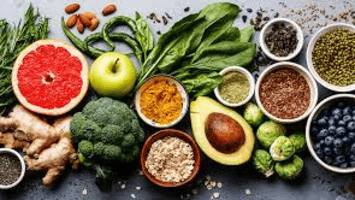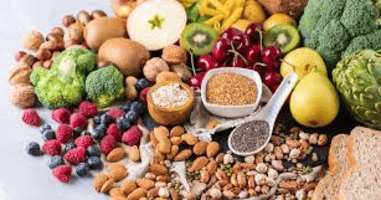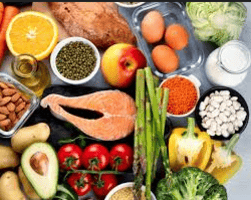When facing chemotherapy, your body needs extra support to weather the storm. Proper nutrition becomes an essential ally in your cancer treatment journey, especially when it comes to boosting your immune system during chemo.
Many patients experience a weakened immune response as cancer treatments target fast-growing cells—including those that help fight infection. Finding the right foods to boost immune system during chemo can make a significant difference in how you feel and recover between treatments.
From protein-rich smoothies that soothe a tender mouth to warming broths that provide comfort and nutrients, this guide will explore gentle yet nourishing options that can help strengthen your natural defenses while being mindful of common chemo side effects like nausea, mouth sores, or taste changes.

Understanding Immune Function During Chemotherapy
Chemotherapy works by targeting rapidly dividing cells in your body—both cancerous and non-cancerous. Unfortunately, this means healthy cells, including white blood cells that form your immune system, can be affected during treatment.
How chemotherapy affects your immune system
- Reduces neutrophil count (neutropenia), the white blood cells that fight bacterial infections
- May lower lymphocyte counts, cells responsible for fighting viral infections
- Can lead to temporary immune suppression, particularly 7-14 days after treatment
- Creates a higher vulnerability to foodborne illnesses and infections
During this time, proper nutrition becomes even more crucial. The right foods to boost immune system during chemo provide essential nutrients that support your body’s natural defenses while helping rebuild healthy cells.
Key Nutrients for Immune Support During Chemotherapy
When focusing on foods to boost immune system during chemo, certain nutrients deserve special attention for their immune-supporting properties:
Protein
- Essential for healing tissues and producing new immune cells
- Helps maintain muscle mass during treatment
- Supports overall strength and energy levels
Vitamin C
- Increases the production and activity of white blood cells
- Contains antioxidants that shield cells from harm.
- Supports tissue repair and healing
Vitamin D
- Regulates immune function and reduces inflammation
- Often deficient in cancer patients
- Works with calcium to support bone health during treatment
Zinc
- Critical for proper immune cell development and communication
- Supports wound healing and tissue repair
- May help maintain taste sensitivity during treatment
Antioxidants
- Aid in reducing oxidative stress and neutralizing free radicals
- Support cellular repair mechanisms
- Include vitamins A, C, E, selenium, and plant compounds
Omega-3 Fatty Acids
- Help reduce inflammation throughout the body
- Support immune cell function
- May help with maintaining muscle mass during treatment
Best Foods to Boost Immune System During Chemo
Let’s explore specific foods to boost immune system during chemo that provide these essential nutrients while being gentle on your digestive system.

Protein-Rich Options
Eggs
- It is a source that has all the necessary protein and is simple to digest
- Versatile and can be prepared many ways depending on taste preferences
- Rich in vitamins D and B12
- Provide selenium to support the immune system.
Greek Yogurt
- Offers probiotics and protein to support digestive health.
- Cooling and soothing for mouth sores
- Can be enhanced with honey or fruits when appetite is low
- Compared to many other dairy products, it is easier to digest.
Fish
- Mild white fish, like cod or halibut offers lean protein
- Fatty fish, like salmon provides omega-3s and vitamin D
- Can be prepared plainly when tastes are sensitive
- Cold fish like smoked salmon requires no cooking when energy is low
Lentils and Beans
- Plant-based protein sources rich in fiber
- Deliver consistent energy without causing blood sugar spikes.
- Contain immune-supporting minerals like zinc and iron
- Can be made into soups and purees when whole beans are difficult to eat
Fruits and Vegetables
Berries
- High in vitamin C and antioxidants
- Easily frozen and included into smoothies
- Lower in acidity than citrus for sensitive mouths
- Provide natural sweetness when taste buds are altered

Leafy Greens
- Rich in vitamins A, C, and K
- Provide folate for healthy cell division
- Can be added to smoothies when raw vegetables are challenging
- Cooking makes them gentler on the digestive system
Sweet Potatoes
- Excellent source of vitamin A for immune function
- Provide complex carbohydrates for sustained energy
- Naturally sweet even when taste is diminished
- Easy to digest when properly cooked
Cruciferous Vegetables
- Contain compounds that support detoxification
- Include broccoli, cauliflower, and brussels sproutsCan be steamed until very soft for easier digestion
- May need to be limited if causing gas or bloating
Healing Broths and Soups
Bone Broth
- Provides easily absorbed amino acids
- Soothes the digestive tract
- Hydrating when appetite is poor
- Can be sipped throughout the day for steady nutrition
Miso Soup
- Contains fermented soybean paste with probiotics
- Provides protein and minerals
- Warming and comforting
- Can be made with soft tofu for extra protein
Immune-Supporting Herbs and Spices
Turmeric
- Contains curcumin with anti-inflammatory properties
- Can be added to warm milk or broth
- Black pepper complements it well for improved absorption.
- May help manage inflammation during treatment
Ginger
- Natural anti-nausea support
- Has anti-inflammatory properties
- Can be brewed as tea or added to foods
- Soothes the digestive system
Immune-Boosting Recipes During Chemotherapy
Let’s explore practical recipes using foods to boost immune system during chemo that are gentle, nourishing, and adaptable to changing tastes and energy levels.
Berry Protein Smoothie
Equipment needed:
- Blender
- Measuring cups and spoons
- Glass or insulated cup
Ingredients:
- 1 cup frozen mixed berries that are mixed and frozen like strawberries, blueberries, raspberries)
- 1 small banana (can be frozen for a colder smoothie)
- 1 cup yogurt Greek (plain or vanilla)
- 1 tablespoon ground flaxseeds
- 1 tablespoon honey (optional, for sweetness)
- ½ cup regular or almond milk
- ½ teaspoon vanilla extract
- Small handful of spinach (optional, for added nutrients)
Preparation:
- Add all ingredients to your blender
- Blend until smooth and creamy
- If extra liquid is required to get the correct consistency, add it.
- Pour into a glass and start enjoying right away.
Tips for success:
- If experiencing mouth sores, serve at room temperature rather than cold
- For protein boost, add a scoop of unflavored protein powder
- Freeze leftovers in ice cube trays for smaller portions when appetite is limited
- Use frozen bananas for a creamier, ice cream-like texture
- Adjust sweetness based on taste changes from chemotherapy
Storage tips:
- It’s best eaten fresh, although it keeps for up to 24 hours in the fridge.
- Keep in an airtight container to preserve nutrients
- Shake or re-blend before drinking if separation occurs
- Freezing in individual portions makes it easy to have a quick nutrition boost
Healing Chicken and Vegetable Soup
Equipment needed:
- Large pot or Dutch oven
- Cutting board and knife
- Measuring cups and spoons
- Wooden spoon for stirring
- Storage containers
Ingredients:
- 2 tablespoons olive oil
- 1 onion, finely diced
- 2 carrots, peeled and sliced
- 2 celery stalks, sliced
- 2 garlic cloves, minced
- 1 inch fresh ginger, grated
- 8 cups low-sodium chicken broth
- 2 boneless, skinless chicken breasts
- 2 medium peeled and cubed sweet potatoes
- 1 cup frozen peas
- 2 cups baby spinach
- 1 tablespoon fresh lemon juice
- Salt and pepper to taste
- Use fresh herbs like dill or parsley which is optional
Preparation:
- Apply medium heat to the olive oil in a big saucepan
- Add the celery, carrots, and onions and cook for 5 to 7 minutes, or until tender.
- Add the ginger and garlic and cook for 1 minute, or until fragrant.
- Put in the chicken stock and bring to a simmer that is moderate.
- Add whole chicken breasts and sweet potatoes
- Simmer covered until chicken is cooked through and sweet potatoes are tender (about 20-25
- minutes)
- Using two forks, remove the chicken and shred with the forks.
- Return shredded chicken to the pot
- Add frozen peas and spinach, cooking just until spinach wilts
- Finish with lemon juice and season with salt and pepper to taste
- Garnish with fresh herbs if using
Tips for success:
- For easier digestion, cook vegetables until very soft
- If experiencing taste changes, adjust seasoning accordingly
- A can of washed white beans can be added for extra protein.
- Use rotisserie chicken when energy is low (skip cooking raw chicken)
- If nausea is an issue, try sipping just the broth
Storage tips:
- Store in the refrigerator in airtight containers for up to three days.
- Individual pieces can be frozen for up to 3 months
- Reheat thoroughly until steaming hot to ensure food safety
- If taste changes occur, try reheating with fresh herbs or a squeeze of lemon
Anti-Inflammatory Turmeric Rice
Equipment needed:
- Medium saucepan with lid
- Measuring cups and spoons
- Wooden spoon
- Fork
Ingredients:
- 1 tablespoon of coconut oil or olive oil
- 1 small onion, finely diced
- 1 teaspoon ground turmeric
- ¼ teaspoon ground black pepper
- 1 cup brown or white rice (white may be gentler for sensitive digestion)
- 2 cups of vegetable (low-sodium) or chicken broth
- ¼ cup chopped fresh parsley
- ¼ cup toasted sliced almonds (optional)
Preparation:
- Put oil in saucepan and heat over medium heat
- Put onion and cook for about 3-4 minutes until translucent
- Put turmeric and black pepper, then stir for 30 seconds until fragrant
- After adding the rice and stirring to coat it with spices,
- Add the broth and leave to boil.
- Then, lower the heat, cover, and simmer the rice until it is soft, and the liquid has been absorbed:
-
- White rice: about 18-20 minutes
- Brown rice: about 35-40 minutes
- Take off the heat and leave it covered for five minutes.
- Fluff with a fork and stir in parsley and almonds if using
Tips for success:
- Black pepper increases turmeric absorption
- If experiencing digestive issues, stick with white rice
- For additional protein, add cooked lentils or chickpeas
- This makes an excellent side dish for simply prepared proteins
- Leftovers can be used for easy rice bowls with protein and vegetables
Storage tips:
- Refrigerate in airtight container up to 3 days
- Can be frozen in portion-sized containers for up to 3 months
- To restore moisture after warming, add a splash of water.
- Safe food handling is crucial during chemotherapy—always reheat thoroughly
Eating Strategies During Chemotherapy
Knowing which foods to boost immune system during chemo is just part of the equation. How and when you eat matters too:
Eating with side effects in mind:
- Nausea: Try small, frequent meals rather than three large ones
- Taste changes: Experiment with different seasonings and temperatures
- Mouth sores: Focus on soft, room-temperature foods
- Fatigue: Prepare and freeze meals during higher energy times
Food safety becomes critical:
- Wash hands thoroughly before food preparation
- Cook foods to proper temperatures
- Steer clear of raw or undercooked eggs, fish, and meats.
- Wash fruits and vegetables thoroughly
- Consider using separate cutting boards for produce and proteins
Hydration supports immune function:
- Drink eight glasses or more of water or other fluids each day.
- Include broths, herbal teas, and water-rich foods
- Take limited quantity of alcohol and coffee as they can dehydrate you.
- Try adding sliced fruit to water for gentle flavo
FAQs
Can certain foods actually boost my immune system during chemotherapy?
While no single food can completely protect your immune system during chemotherapy, a nutrient-rich diet focused on protein, vitamins, minerals, and antioxidants provides your body with the building blocks needed to support immune function.
Foods particularly helpful include protein sources like eggs and fish, colorful fruits and vegetables, yogurt with probiotics, and foods rich in vitamin C, vitamin D, and zinc.
What should I eat when my white blood cell count is low from chemotherapy?
When experiencing neutropenia (low white blood cell count), focus on both immune-supporting nutrients and food safety. Choose thoroughly cooked foods rather than raw options.
Good choices include well-cooked eggs, thoroughly heated soups and stews, cooked vegetables, and pasteurized dairy products. Protein from sources like chicken, fish, beans, and Greek yogurt provides essential amino acids for immune cell production.
How can I maintain good nutrition when I have no appetite during chemo?
When appetite is diminished, focus on nutrient-dense foods that provide maximum nutrition in smaller portions. Liquid nutrition like smoothies, protein shakes, and broths can be easier to consume.
Keep nutrient-rich snacks easily accessible. Try eating when hunger naturally occurs rather than sticking to conventional mealtimes. Adding moderate seasonings or consuming foods at room temperature rather than hot may be more appealing if experiencing taste changes.
Are there foods I should avoid during chemotherapy?
During chemotherapy, certain foods may be problematic depending on your specific side effects and immune status. Generally, consider limiting or avoiding alcohol, which can interact with medications and further suppress immune function.
If experiencing neutropenia (low white blood cell count), your medical team may advise avoiding raw fruits and vegetables, undercooked meats or eggs, unpasteurized dairy products, and raw nuts or seeds due to infection risk. Spicy, acidic, or rough-textured foods may need to be avoided if experiencing mouth sores or digestive issues.
Always discuss specific dietary restrictions with your healthcare team, as recommendations vary based on your treatment protocol and side effects.
How can I address taste changes that make healthy foods unappetizing during chemo?
Taste changes are common during chemotherapy and can make even favorite foods unappetizing. Try adjusting cooking methods—sometimes foods taste better at room temperature rather than hot.
Experiment with different seasonings; if experiencing metallic taste, try using plastic utensils instead of metal ones. Marinating proteins in sweet or tangy sauces may help overcome bitter tastes.
For metallic or bitter taste changes, try adding a bit of sweetness with honey or maple syrup. If red meat tastes off, try protein alternatives like eggs, dairy, poultry, or plant proteins. Sucking on tart candies before meals can sometimes temporarily improve taste perception.
Conclusion…
Navigating nutrition during chemotherapy presents unique challenges, but focusing on the right foods to boost immune system during chemo can make a meaningful difference in your treatment journey.
By prioritizing protein-rich foods, colorful fruits and vegetables, and gentle, nutrient-dense options, you provide your body with the essential building blocks needed to support immune function during this demanding time.
Above all, nutrition during cancer treatment isn’t about perfection but persistence. Be patient with yourself, celebrate small victories, and remember that good nutrition is a powerful complement to your medical treatment—a way to actively participate in your healing journey one meal at a time.
